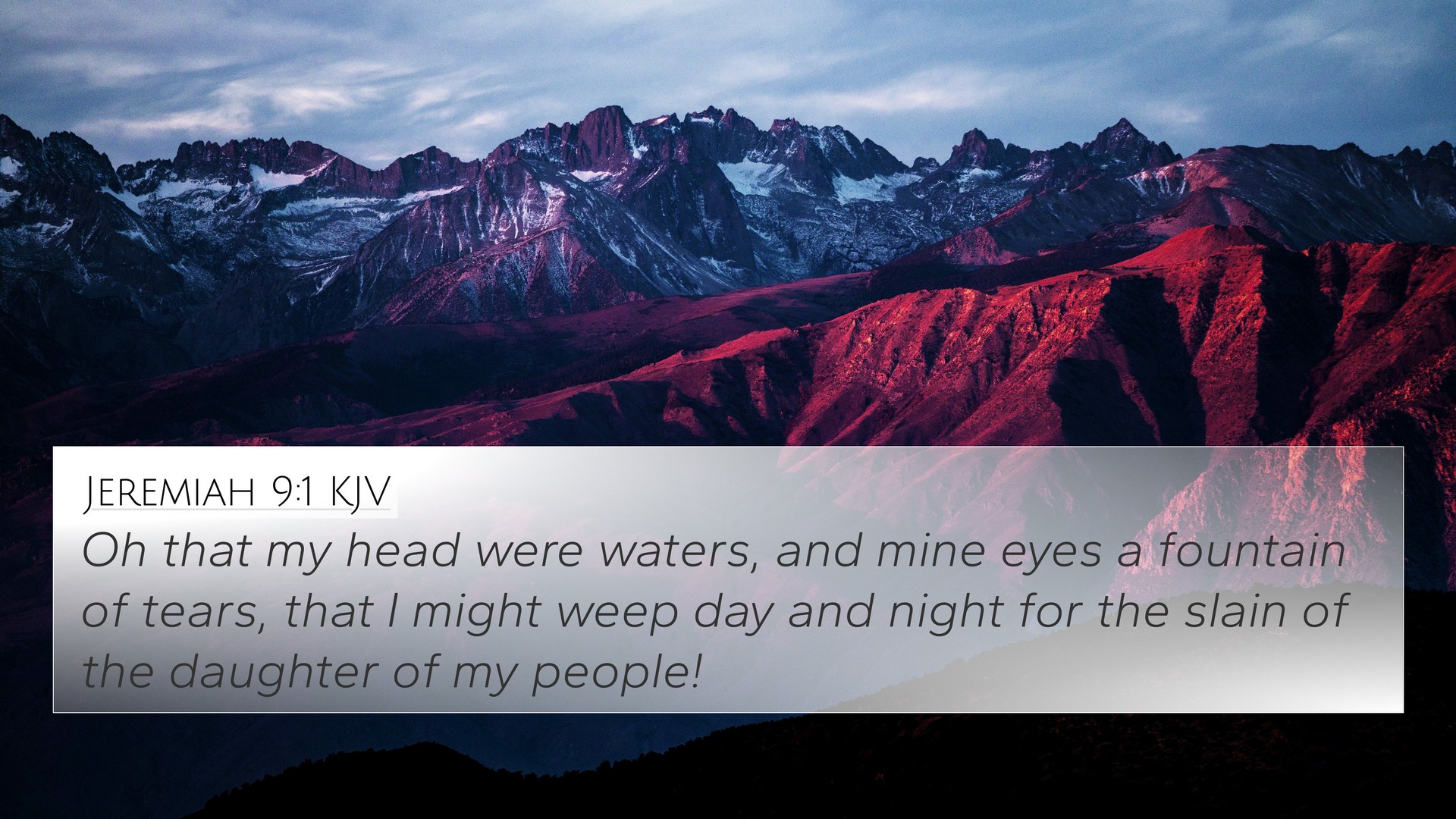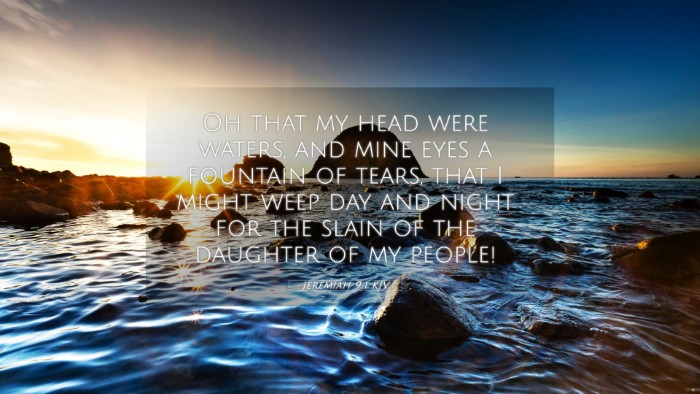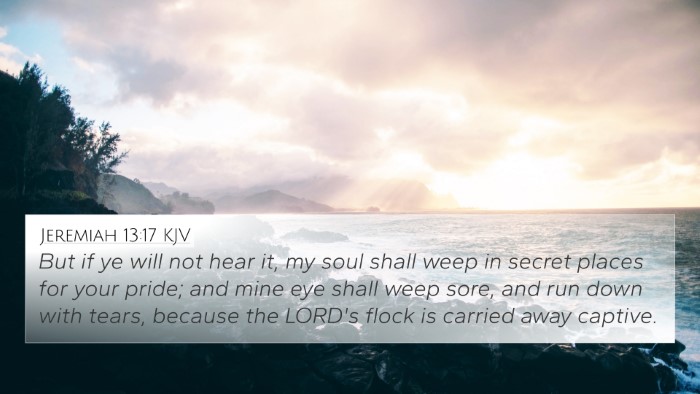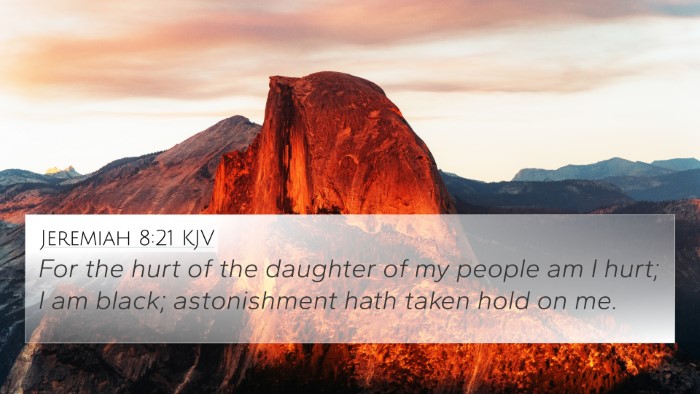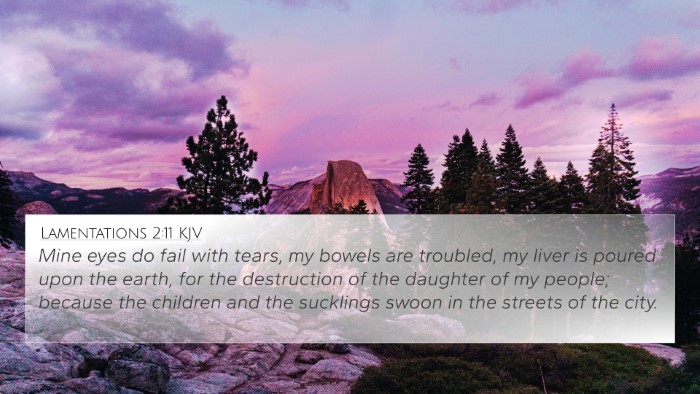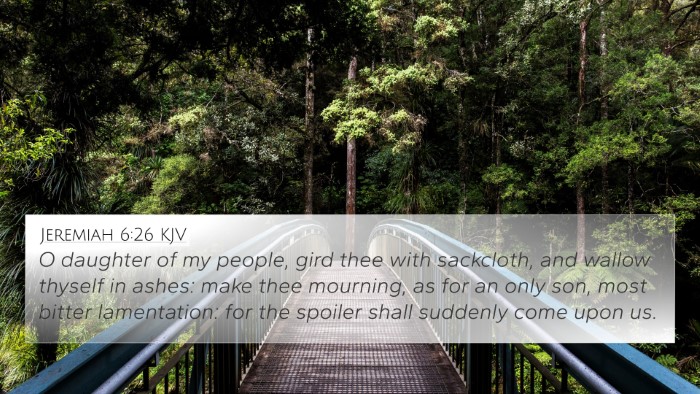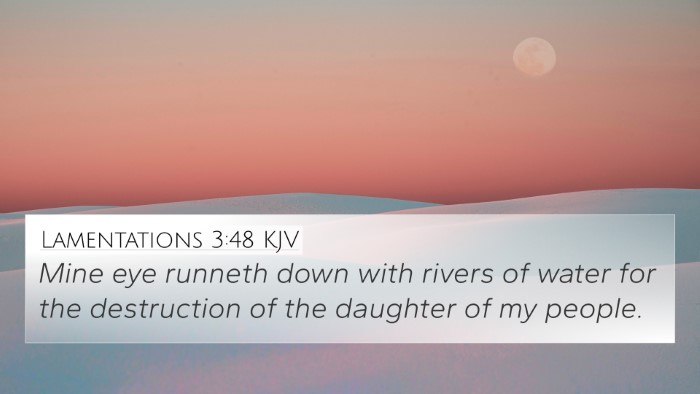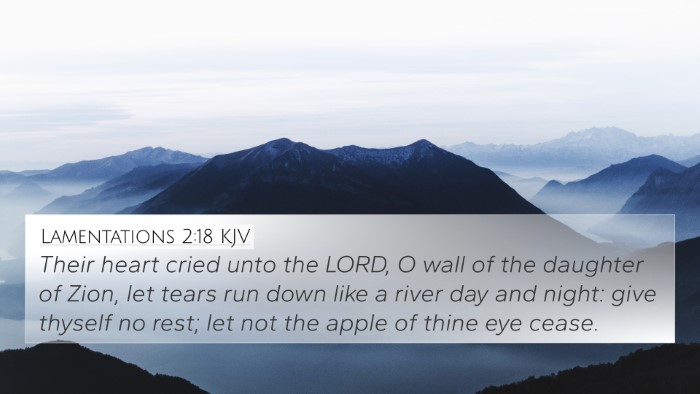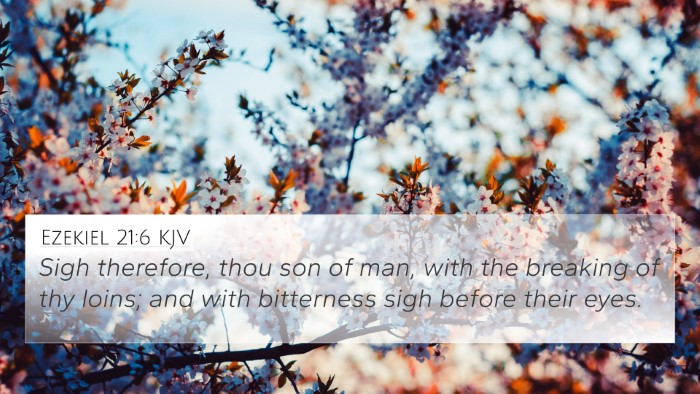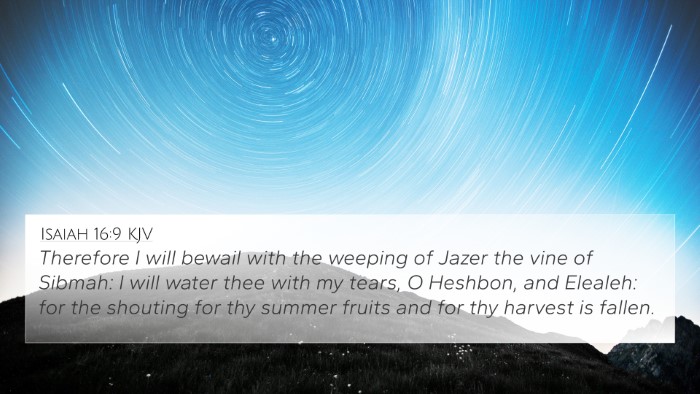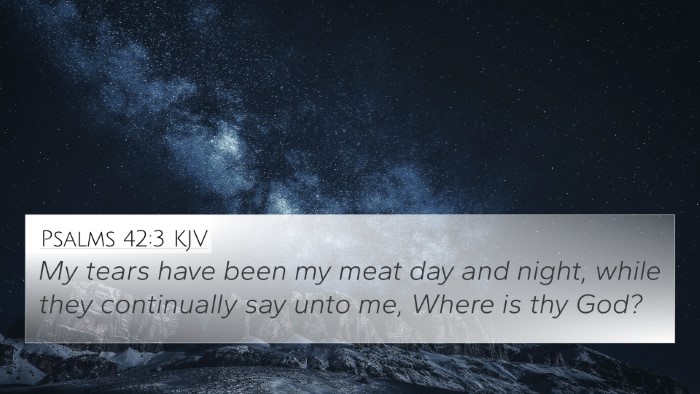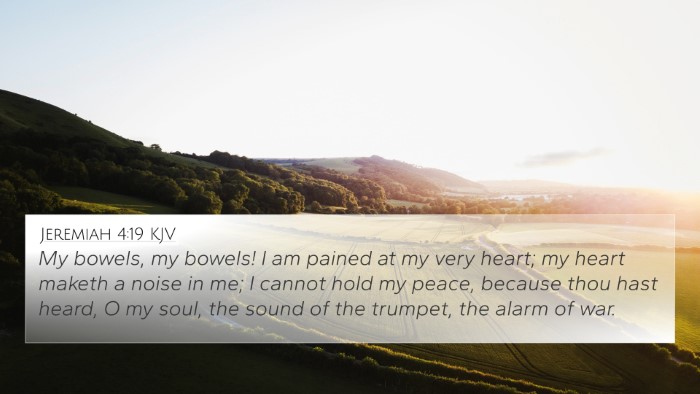Understanding Jeremiah 9:1
Jeremiah 9:1 states:
"Oh, that my head were waters, and mine eyes a fountain of tears, that I might weep day and night for the slain of the daughter of my people!" (KJV)
Summary of Jeremiah 9:1 Meaning
This verse captures the deep sorrow and anguish of the prophet Jeremiah over the sins and impending judgment upon the people of Israel. It conveys a profound emotional state, characterized by grief and lamentation. Jeremiah's desire to weep for his people illustrates both his personal suffering and his prophetic burden for the nation.
Insights from Textual Commentaries
- Matthew Henry: Henry emphasizes the heartfelt compassion of Jeremiah. He underscores that the prophet’s tears reflect God's own sorrow for His people, who turn from righteousness and spirit-filled living.
- Albert Barnes: Barnes notes that this imagery of overflowing tears represents the depth of Jeremiah's love and concern for Judah. He connects this sorrow to the impending judgments that would befall those who do not heed God's warnings.
- Adam Clarke: Clarke elaborates on the metaphorical significance of waters and tears. He argues that Jeremiah longs for a way to express his grief adequately, wishing he could flood the earth with his sorrow as a means to intercede for his people.
Contextual Analysis
To fully grasp the implications of Jeremiah 9:1, it's crucial to consider the broader context of the Book of Jeremiah, where themes of judgment, repentance, and hope are frequently interwoven. Jeremiah functions not only as a prophet but also as a intercessor who pleads before God on behalf of his people.
Bible Verses Related to Jeremiah 9:1
- Lamentations 3:48-49: "Mine eye runneth down with rivers of water for the destruction of the daughter of my people." This verse echoes Jeremiah's sorrow.
- Psalm 119:136: "Rivers of waters run down mine eyes, because they keep not thy law." Similar themes of grief for unfaithfulness are present.
- Matthew 23:37: "O Jerusalem, Jerusalem, thou that killest the prophets, and stonest them which are sent unto thee!" Jesus mirrors Jeremiah’s lament over Jerusalem’s rejection of God.
- Isaiah 53:3: "He is despised and rejected of men; a man of sorrows, and acquainted with grief." This verse captures the essence of the suffering servant, resonating with Jeremiah's lamentation.
- Romans 9:2-3: "That I have great heaviness and continual sorrow in my heart... for my brethren, my kinsmen according to the flesh." Paul demonstrates a similar sorrow for his people.
- Ezekiel 9:4: "And the Lord said unto him, Go through the midst of the city... and set a mark upon the foreheads of the men that sigh and that cry for all the abominations." A call for those who lament sin.
- Revelation 21:4: "And God shall wipe away all tears from their eyes..." which offers hope despite the sorrow inherent in earthly suffering.
Thematic Connections Between Bible Verses
The poignancy of Jeremiah's lament in Jeremiah 9:1 can be understood through cross-references that highlight the themes of repentance, divine judgment, and intercession:
- Connection between Jeremiah's grief and the intercessory work of Christ in the New Testament.
- Comparison of Jeremiah's sorrow with the psalmists who often pour out their anguish for the nation.
- Linking themes of lamentation seen in the prophetic books with the New Testament's depiction of God's redemptive heart.
Tools for Bible Cross-Referencing
Utilizing tools for cross-referencing can deepen one’s understanding of scripture:
- Bible Concordance: A valuable resource for finding related verses.
- Bible Cross-Reference Guide: Helps identify links between scripture passages succinctly.
- Cross-Reference Bible Study: An effective method to enrich Bible study through identifying themes and patterns.
Conclusion
Jeremiah 9:1 serves as a profound invitation to empathize with the weight of sin and the gravity of spiritual loss. It acknowledges the pain of divine disobedience while calling believers to compassion and intercession. By exploring its cross-references and related themes, readers can witness a richer tapestry of God's unfolding narrative throughout the Bible.
